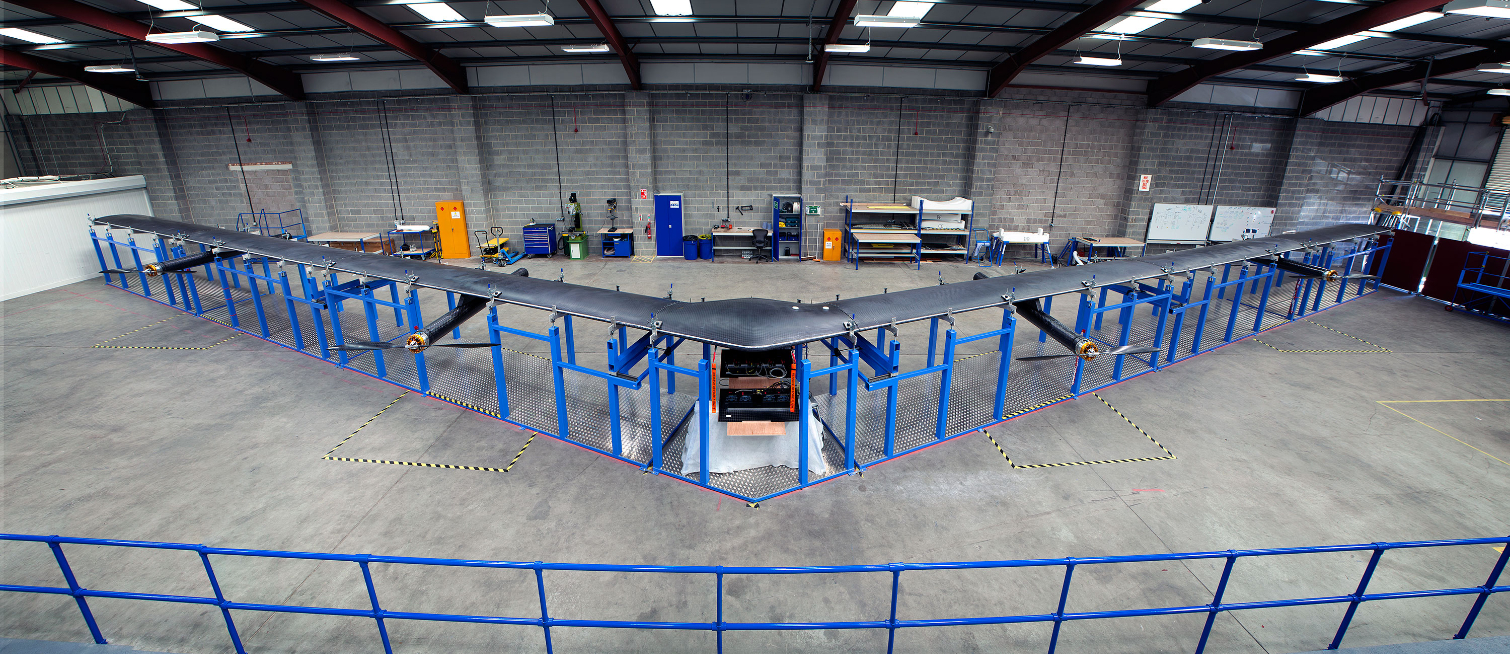Facebook Grounds Plans to Fly Internet Access to Rural Areas With Drones
Facebook's dreams of expanding internet access to underserved communities with drones are coming to an end. The company announced that it's officially ending the Aquila project it revealed in 2014, though it will continue to partner with other companies carrying similar ambitions.
At first, Aquila seemed like something out of a science fiction novel. Facebook's hope was to have a drone with a wingspan the size of a 737 serve as a conduit between satellites and rural communities. This would allow people who live in areas that existing network providers have little interest in to have better internet access, which could in turn convince them to sign up for Facebook's services (Facebook has to benefit somehow).
The project doesn't appear to have been shut down because it didn't work. Facebook successfully piloted Aquila twice between the project's revelation and its shuttering, which means it's at least able to fulfill the "flight" portion of its job description, and it appears to have been able to provide a stable internet connection as well.
Here's what Facebook said in a blog post this week about its accomplishments with the Aquila project:
"We've made important progress on some of the other key parts of the system — including setting new records using millimeter-wave (MMW) technology in air-to-ground and point-to-point communication. And then we more than doubled our MMW record with 40 Gbps connectivity simultaneously in both directions from a ground location to a circling Cessna aircraft over 7 kilometers away."
The company noted that it's also pushed regulators around the world to agree on how systems like Aquila should be governed. Yet it seems that seeing "leading companies in the aerospace industry start investing in this technology too — including the design and construction of new high-altitude aircraft" led the company to stop designing and building its own aircraft and to close the facility where Aquila was being developed.
Aquila isn't the only seemingly far-fetched solution to the problem of rural internet access. Companies like AT&T have also revealed plans to deliver internet via power lines, which are all but ubiquitous in the U.S., and improved wireless networks provide at least some form of internet access (although those connections are less reliable, worse-performing and often more expensive than their wired counterparts would be).
Get Tom's Hardware's best news and in-depth reviews, straight to your inbox.
Facebook also noted that Aquila's grounding won't signal the end of its efforts to expand internet access. The company's also investing in new technologies, supporting the foundation of fiber networks and more.
Just think of Aquila like Icarus' wings--it worked, sure, but it wasn't the right tool for the job. At least Facebook didn't fly anything too close to the sun and send a sci-fi-looking drone careening down to Earth.

Nathaniel Mott is a freelance news and features writer for Tom's Hardware US, covering breaking news, security, and the silliest aspects of the tech industry.
-
stdragon Darn it. Now has is the Zuck going to spread the FB message to all the unwashed-masses (i'm being sarcastic)?Reply
I hope FB fails as a company.
/end rant
-
InboxJonathan Basically they're getting their spy tech in place. Giving these people "internet" access is just the cover for the real agenda. 24/8 (yes 8) spying on people who wish to live off the grid. Not to mention, us having a future where there is no where you can run to to escape being perpetually microwaved by technology.Reply
Yeah, the day is fast approaching where all of nature is tainted by men with money (or should I say the real owners of this world), since what I say will never matter. I do not have a say-so. In fact, Facebook will soon look to categorize articles that articulate these matters I speak of as "fake news" (I saw the TV ad), and in turn, remove them. Wake up. -__- -
jasonkaler Did anyone seriously expect their story to be true?Reply
How do extremely poor people get the ground equipment to communicate with the drone? You can't just beam the internet into people's homes without a receiver/transmitter on the ground - which requires electricity, which is the actual problem they need to solve. -
danlw Wow. @jasonwalker needs to get out more. A lot of people living in rural areas are doing just fine. You don't live out in the country on acres of land because you're dirt poor. You live there because you can afford not to live in a city.Reply
A lot of country homes look just like houses in the suburbs. And it's not uncommon to see some VERY nice houses out in the middle of nowhere.
